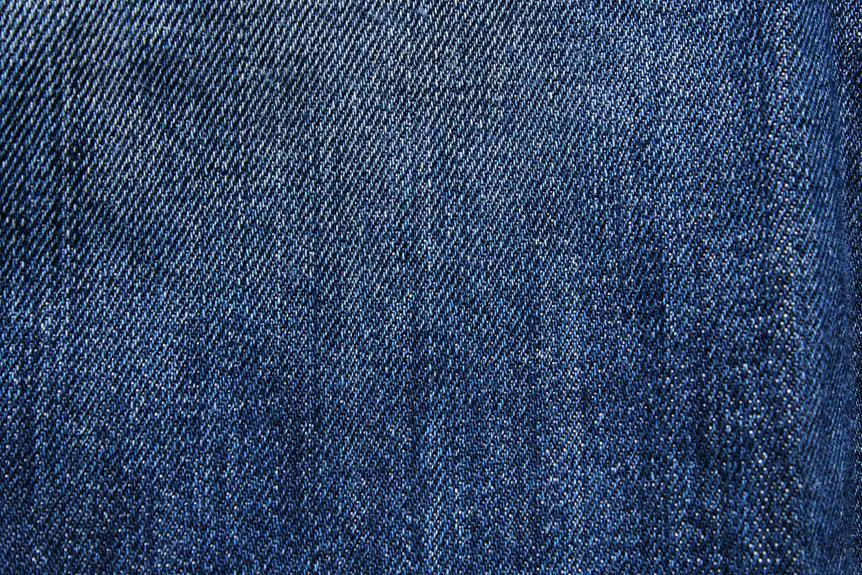You're probably curious about whether ring spun cotton truly lives up to its hypoallergenic reputation. While many claim its tightly woven structure reduces moisture and dust mites, making it a friendlier option for allergy sufferers, the reality can be more complex. Some people report experiencing irritation despite using this fabric, which raises questions about its overall suitability. Are there specific factors that could influence your experience with ring spun cotton? Understanding the nuances might just help you make informed choices for your sensitive skin.
Table of Contents
What Is Ring Spun Cotton?
Ring spun cotton is a type of cotton yarn that's created by twisting and thinning strands of cotton fibers, resulting in a softer and stronger fabric. This process involves continuously spinning the fibers, which gives ring spun cotton its unique qualities. Unlike regular cotton, which is made by merely spinning shorter fibers together, ring spun cotton uses longer, finer fibers, providing a more durable product.
When you're looking for high-quality textiles, you'll often find that ring spun cotton is a popular choice. It's not just about aesthetics; the durability means you can expect your garments to last longer, reducing the need for constant replacements. You might notice that garments made from ring spun cotton feel incredibly smooth against your skin, making them a comfortable option for everyday wear.
Moreover, because of its strength, ring spun cotton is less likely to pill or fray, further enhancing its longevity. So, whether you're shopping for t-shirts, sheets, or other items, understanding what ring spun cotton is will help you make informed choices for your comfort and style.
Properties of Ring Spun Cotton
When you choose ring spun cotton, you're opting for a fabric that offers incredible softness and comfort.
It's not only gentle against your skin but also breathable, making it perfect for various climates.
Plus, its durability ensures that it stands up to wear and tear, giving you a reliable choice for your wardrobe.
Softness and Comfort
You'll find that the unique spinning process of ring spun cotton results in an exceptionally soft and comfortable fabric that feels gentle against the skin. This method twists and spins individual fibers tightly, leading to a smooth and durable finish. The result? You get a textile that's perfect for everyday wear.
Here are four key reasons why ring spun cotton excels in softness and comfort:
- Fine Texture: The spinning process produces finer yarns, which create a softer feel compared to regular cotton.
- Less Irritation: Its smooth surface minimizes friction against your skin, reducing the chance of irritation.
- Versatile Use: You'll love how it's perfect for various garments, from t-shirts to loungewear, making it versatile for all occasions.
- Long-lasting Softness: Unlike regular cotton, ring spun maintains its softness even after multiple washes, ensuring continued comfort over time.
When you choose ring spun cotton, you're not just opting for a fabric; you're embracing a whole new level of softness and comfort that enhances your daily wear.
Breathability and Durability
The softness of ring spun cotton naturally complements its impressive breathability and durability, making it a top choice for active lifestyles.
You'll appreciate how easily air flows through this fabric, keeping you cool and comfortable whether you're working out, running errands, or simply lounging at home. That breathability helps regulate your body temperature, reducing sweat and stuffiness.
Durability is another standout feature. Ring spun cotton's tightly twisted fibers lend strength and resilience, ensuring that your garments withstand daily wear and tear.
You won't have to worry as much about fraying, fading, or losing shape over time. This makes it a practical option for everything from casual t-shirts to more refined apparel.
Moreover, this fabric holds up well through multiple washes, which means you can enjoy its benefits longer.
Hypoallergenic Factors to Consider
Several factors influence whether a fabric, like ring spun cotton, can be considered hypoallergenic. When evaluating this, you should keep an eye on a few key elements:
- Fiber Treatment: Fabrics treated with harsh chemicals can trigger allergies. Look for organic, untreated options for more allergy-friendly choices.
- Dust Mite Resistance: Some materials attract dust mites, leading to allergic reactions. Choosing tightly woven fabrics reduces this risk.
- Breathability: Materials that allow air circulation can deter moisture buildup, which promotes mold and mildew growth—both potential allergens. Ring spun cotton's breathability can work in your favor.
- Skin Sensitivity: If you're prone to skin sensitivities, consider how different fabrics feel against your skin. Ring spun cotton is known for its softness, making it a more suitable option for sensitive individuals.
Comparison With Other Fabrics
When you compare ring spun cotton to other fabrics, you'll notice some key differences that affect comfort and hypoallergenic properties.
Consider how it stacks up against combed cotton, as well as natural fibers versus synthetics.
Exploring allergens in common fabrics can also help you make an informed choice for your skin's health.
Ring Spun Vs. Combed
Ring spun cotton often feels softer and more durable than combed cotton, providing a superior comfort that many prefer for everyday wear.
When comparing ring spun and combed cotton, you might want to consider these key differences:
- Softness: Ring spun cotton uses a spinning method that creates a finer, softer yarn, resulting in a gentler touch against your skin.
- Durability: The twisting process in ring spinning increases the fabric's strength, making it more resilient to wear and tear than combed cotton.
- Breathability: Ring spun cotton tends to be more breathable, keeping you comfortable in warmer weather, while combed cotton can sometimes feel heavier.
- Cost: Typically, ring spun cotton products are priced higher than combed cotton items, reflecting the more intensive manufacturing process and the quality of the finished fabric.
Whether you prioritize comfort, durability, breathability, or budget, understanding the distinctions between these two types of cotton will help you make a better choice for your wardrobe.
Natural Fibers Vs. Synthetics
Natural fibers like ring spun cotton offer a range of benefits that often set them apart from synthetic fabrics, influencing your comfort and skin health. When you wear clothing made from natural fibers, you're likely to experience increased breathability and moisture-wicking properties. This is especially important if you're active or live in a warmer climate, as these qualities help keep you dry and comfortable.
In contrast, synthetic fabrics can trap moisture, leading to discomfort and potential irritation. They may also contain chemicals that can aggravate sensitive skin, making natural fibers a safer choice for many.
Additionally, natural fibers like cotton are biodegradable, contributing to less environmental waste compared to their synthetic counterparts, which can take centuries to decompose.
Moreover, ring spun cotton, while luxurious and soft, also tends to be more durable than standard cotton, meaning your clothing will likely last longer without losing its integrity.
Ultimately, by selecting natural fibers over synthetics, you're not only prioritizing your comfort and skin health but also making a more eco-conscious decision. This choice reflects a holistic approach to well-being, combining comfort, longevity, and environmental responsibility.
Allergens in Common Fabrics
All fabrics can harbor allergens, but ring spun cotton generally stands out as a hypoallergenic option compared to synthetics and other common materials.
When you're choosing fabrics, it's essential to understand which ones might trigger allergies. Here's a quick comparison to help you:
- Cotton: While traditional cotton can collect dust mites, ring spun cotton is smoother and less likely to hold allergens.
- Polyester: This synthetic fabric attracts pet dander and dust, making it a poor choice for allergy sufferers.
- Linen: Though a natural fiber, linen can still harbor mold and mildew if not cared for properly.
- Wool: This fabric can cause reactions for some individuals, as its natural oils may irritate sensitive skin.
Care Tips for Sensitive Skin
If you have sensitive skin, opting for soft fabrics like ring spun cotton can make a significant difference in your comfort.
However, caring for your clothing and bedding properly is just as crucial. Always wash new items before wearing them to eliminate any residues or chemicals from production. Utilize a gentle, hypoallergenic detergent that won't irritate your skin.
When washing, use cold water to reduce the risk of shrinkage and damage to the fibers. Avoid fabric softeners and dryer sheets, as these can contain harsh chemicals that may trigger a reaction. Instead, consider using white vinegar as a natural fabric softener. It helps soften the fabric while being gentle on the skin.
When it comes to drying, air-drying your clothes is the best option. If you use a dryer, select a low heat setting to preserve the integrity of the fabric.
Always inspect your items for any signs of wear or damage, as rough edges can irritate sensitive skin.
Personal Experiences and Testimonials
Many people with sensitive skin have shared positive experiences when switching to ring spun cotton, noting its softness and comfort against their skin. Here's what some have reported after making the switch:
- Reduced Irritation: Many users found that ring spun cotton caused less irritation compared to traditional cotton, allowing them to wear their clothes comfortably all day.
- Breathability: Several testimonials mention how ring spun cotton's breathability helped prevent overheating and sweat-related skin issues, which are common triggers for sensitivity.
- Durability: Users love that despite its soft texture, ring spun cotton remains strong and holds up well in the wash, making it a wise investment for those with sensitive skin.
- Versatile Use: People appreciate the versatility of ring spun cotton, using it for everything from bed linens to clothing, ensuring their sensitive skin's comfort in various settings.
Frequently Asked Questions
Can Ring Spun Cotton Be Used for Allergy-Prone Baby Clothes?
Yes, you can use ring spun cotton for allergy-prone baby clothes. Its soft, tightly twisted fibers create a smoother surface, reducing irritants, making these garments gentle on your baby's sensitive skin while ensuring comfort.
Does Ring Spun Cotton Contain Any Synthetic Fibers?
No, ring spun cotton doesn't contain synthetic fibers; it's made entirely from natural cotton. This process enhances softness and durability, making it a great choice for comfortable clothing without any unwanted additives.
How Does Ring Spun Cotton Resist Dust Mites?
Ring spun cotton's tightly twisted fibers create a denser fabric, reducing dust mites' ability to penetrate. This construction helps you minimize allergen exposure and maintain a cleaner, more comfortable sleeping or living environment.
Is Ring Spun Cotton Safe for People With Eczema?
If you have eczema, ring spun cotton's softness and breathability can help prevent irritation. It's generally safe, but always test small areas first to ensure your skin reacts well. Comfort is key in managing eczema flare-ups.
Can You Machine Wash Ring Spun Cotton Without Damaging It?
Yes, you can machine wash ring spun cotton without damaging it. Just use a gentle cycle and avoid high heat when drying. It'll stay soft and maintain its quality with proper care, so enjoy your fabric!







